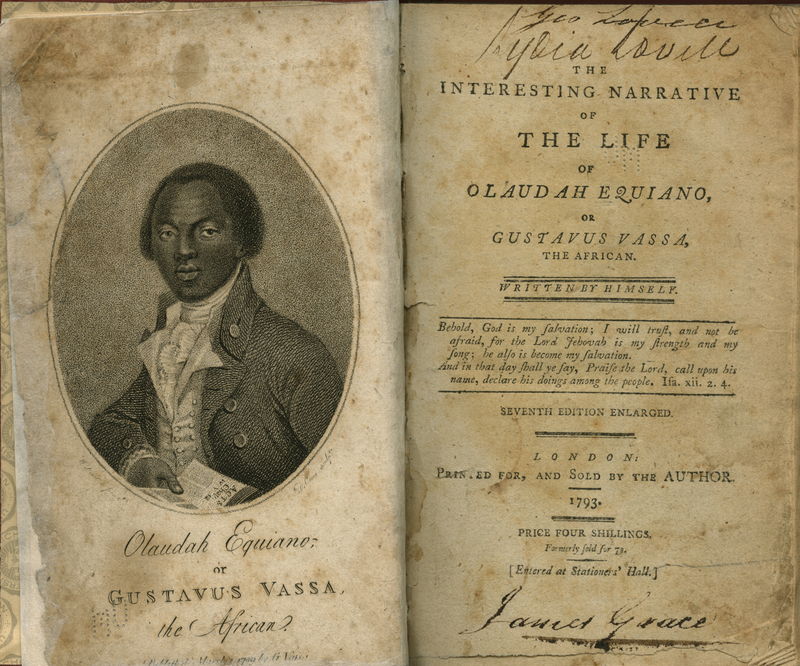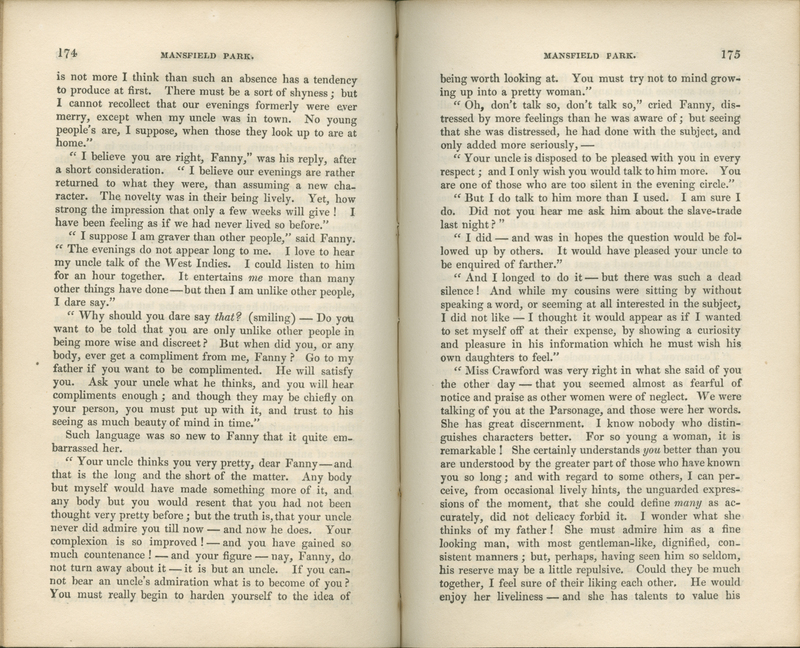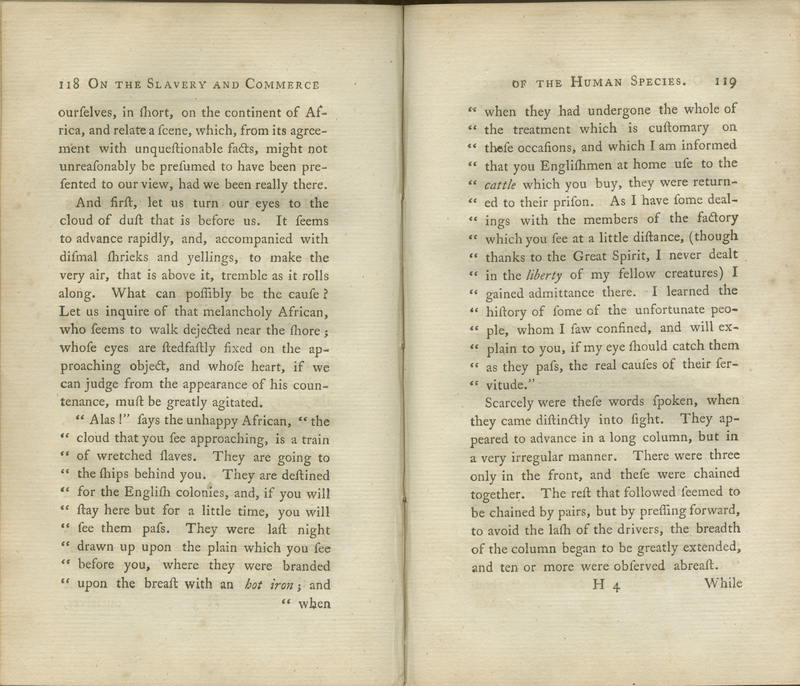Abolition
Equiano’s influential early slave narrative, first published in London in 1789, turned its author into a celebrity. Equiano’s eloquent account of his early life in an Ibo village in Nigeria, abduction, sale into slavery, and eventual freedom offered a powerful argument against eighteenth-century ideas about the savagery of Africans and revealed the horrors of the European slave trade. As a sailor, Equiano was able to trade on his own behalf, eventually purchasing his own freedom in 1766, converting to Methodism, and becoming an abolitionist. The Narrative was highly popular, going through eight editions in Equiano’s lifetime and sixteen additional editions, abridgments, and translations before the end of the nineteenth century. Although the text was also celebrated for its focus on religious concerns, readers across Great Britain were moved by his personal account of the brutality of the slave trade.
Sir Thomas Bertram’s trip to Antigua to check on his estate propels Mansfield Park’s plot by creating an absence of restraint that culminates in highly flirtatious rehearsals of the play Lovers’ Vows. On the other hand, his trip also brings into the novel’s consciousness the connection between Sir Thomas’s estates and the slave labor conveniently kept out of sight from his family in England.
The scene featured here has raised considerable scholarly debate about how to read the presence of slavery in the novel and Austen’s stance on it, notably through the “dead silence” following Fanny’s question to her uncle, Sir Thomas Bertram, about the slave trade. Edward Said’s postcolonial reading of the novel points to the extent to which Sir Thomas’s plantation in the West Indies supplies the wealth that his family enjoys in England and props up Mansfield Park itself. Thus, the family’s conspicuous lack of interest in the slave-trade—something that happens “out there”—can be read as determinedly turning a blind eye toward the misery, and the profits on that misery, that support their comfortable life. Fanny’s moral authority in the novel, as well as her dependent position in the household, mean that her introduction of the slave trade as a topic raises suggestive questions about the ways in which she potentially stands in as a critique of slavery as an economic and social system.
Thomas Clarkson was an ordained deacon who devoted his career to advocating for the abolition of the slave trade. Clarkson won the university Latin prize at Cambridge in 1785 for his essay on the slave trade, featured here as published in translation by the Quaker bookseller James Phillips in 1788. With this essay, Clarkson began a lifelong career of advocating for the abolition of slavery.
In the passage highlighted here, Clarkson draws on what he has read about the slave trade to imagine a scene in Africa where a train of slaves chained together passes the narrator on their way to the ships that will take them to the English colonies. A “melancholy African” on the shore describes the situation of each and the circumstances under which they were enslaved. Clarkson’s aim in this section is to illuminate the conditions of slavery by focusing on the “treatment, which the unfortunate Africans uniformly undergo, when they are put into the hands of the receivers.” Clarkson published twenty-three works in his lifetime, most of which related to the question of slavery. Austen is known to have read and admired Clarkson’s work, writing in a January 24, 1813 letter to her sister Cassandra that “I am as much in love with the Author [Charles William Pasley, author of Essay on the Military Policy and Institutions of the British Empire (1810] as I ever was with Clarkson.”
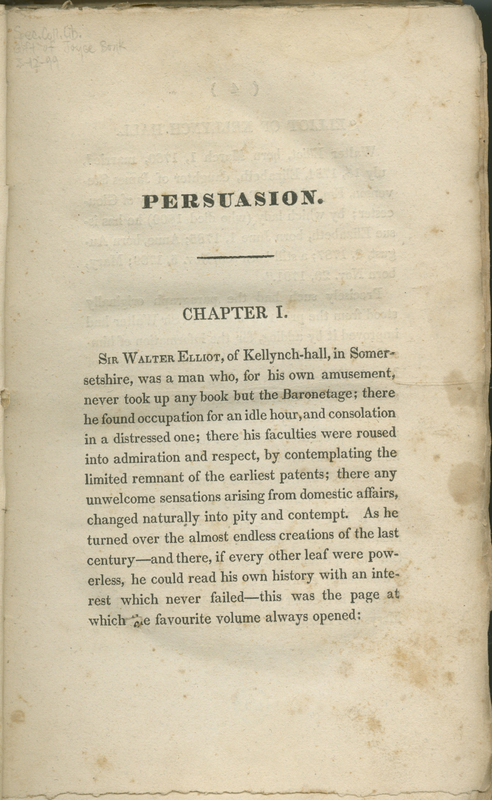
Social Mobility
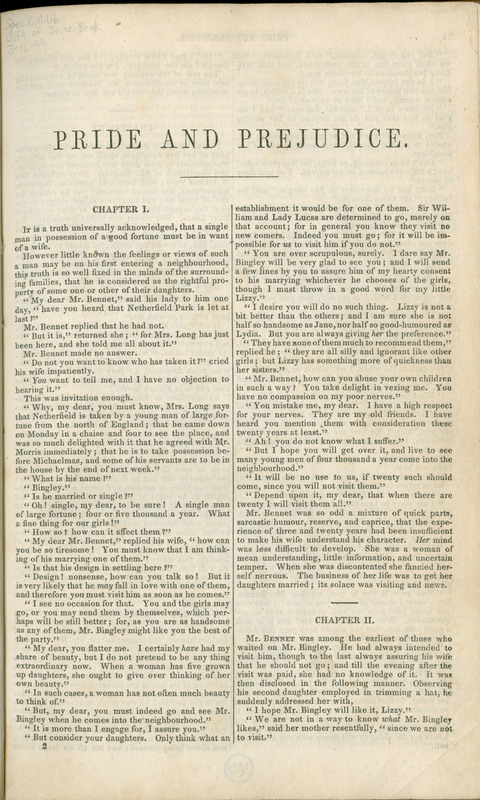
Napoleonic Wars

